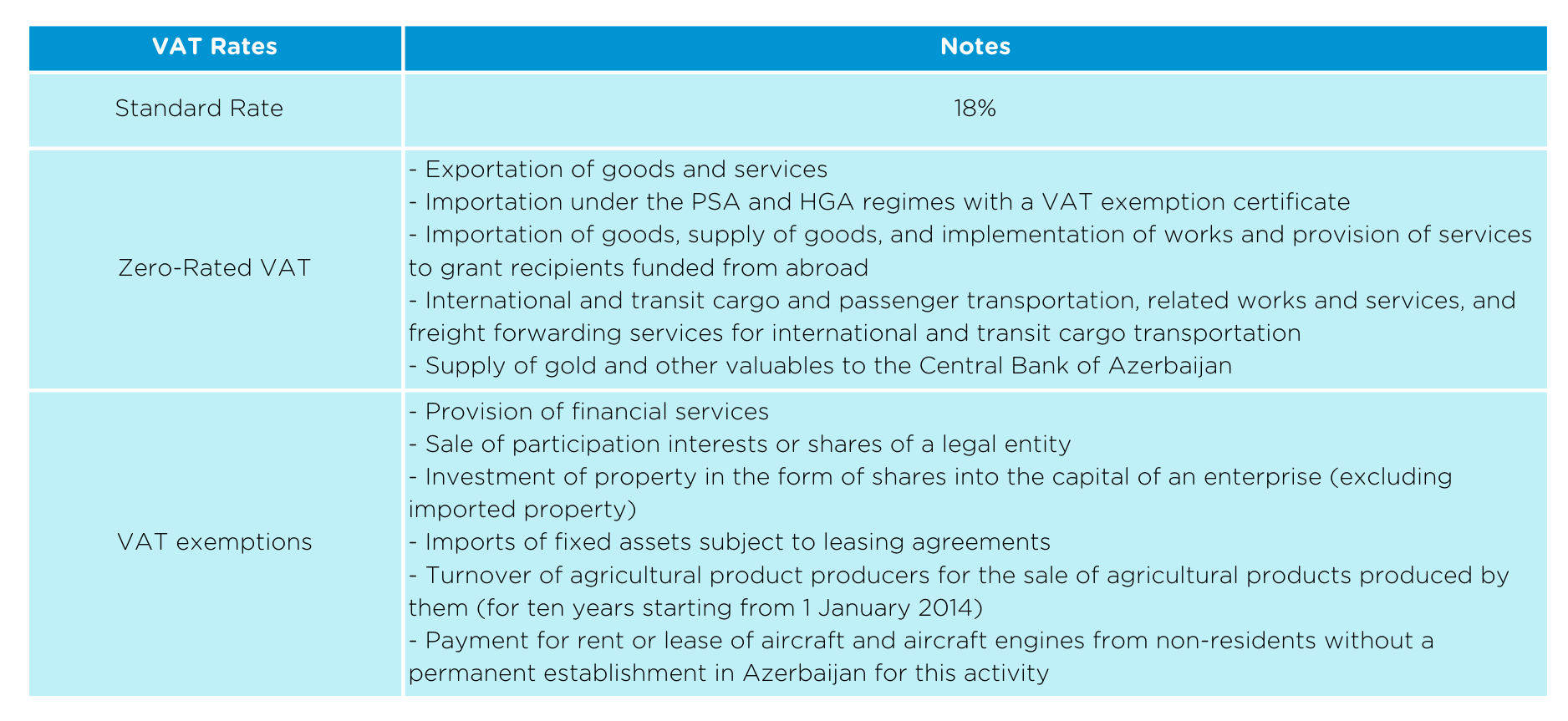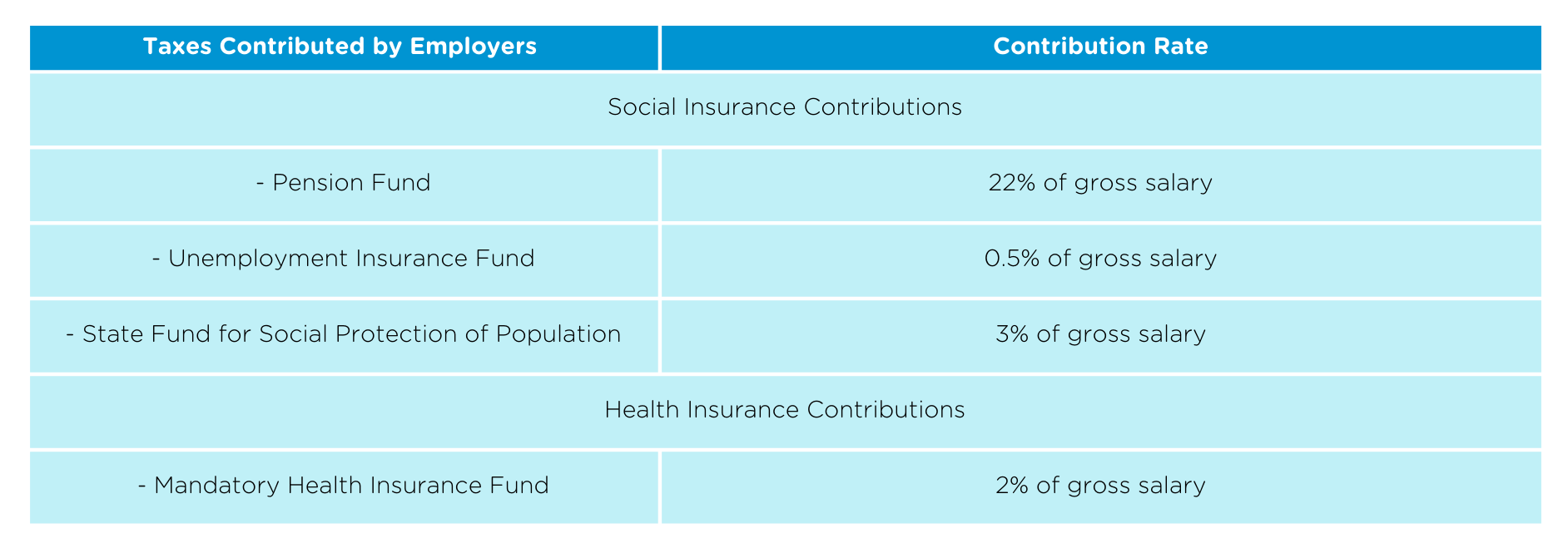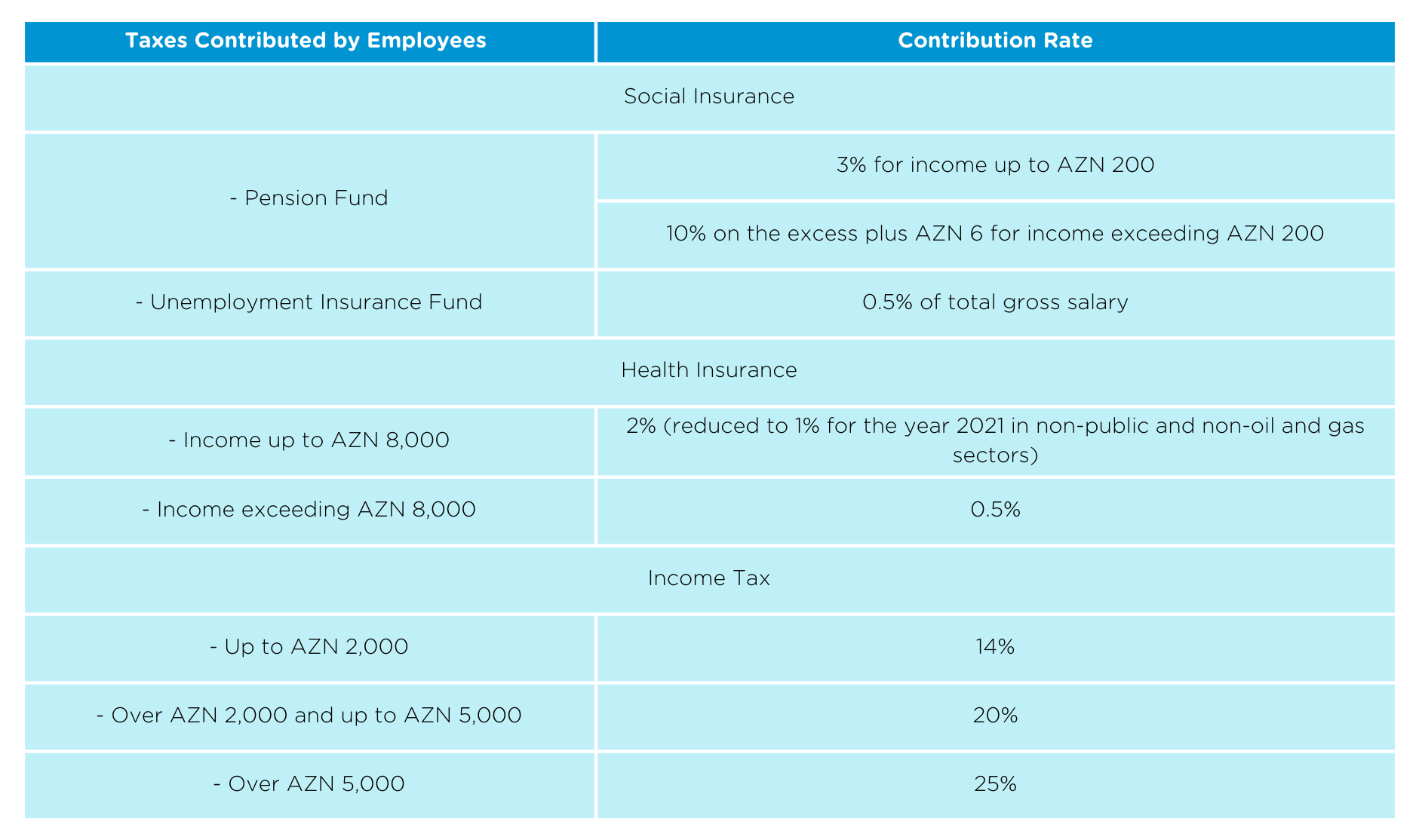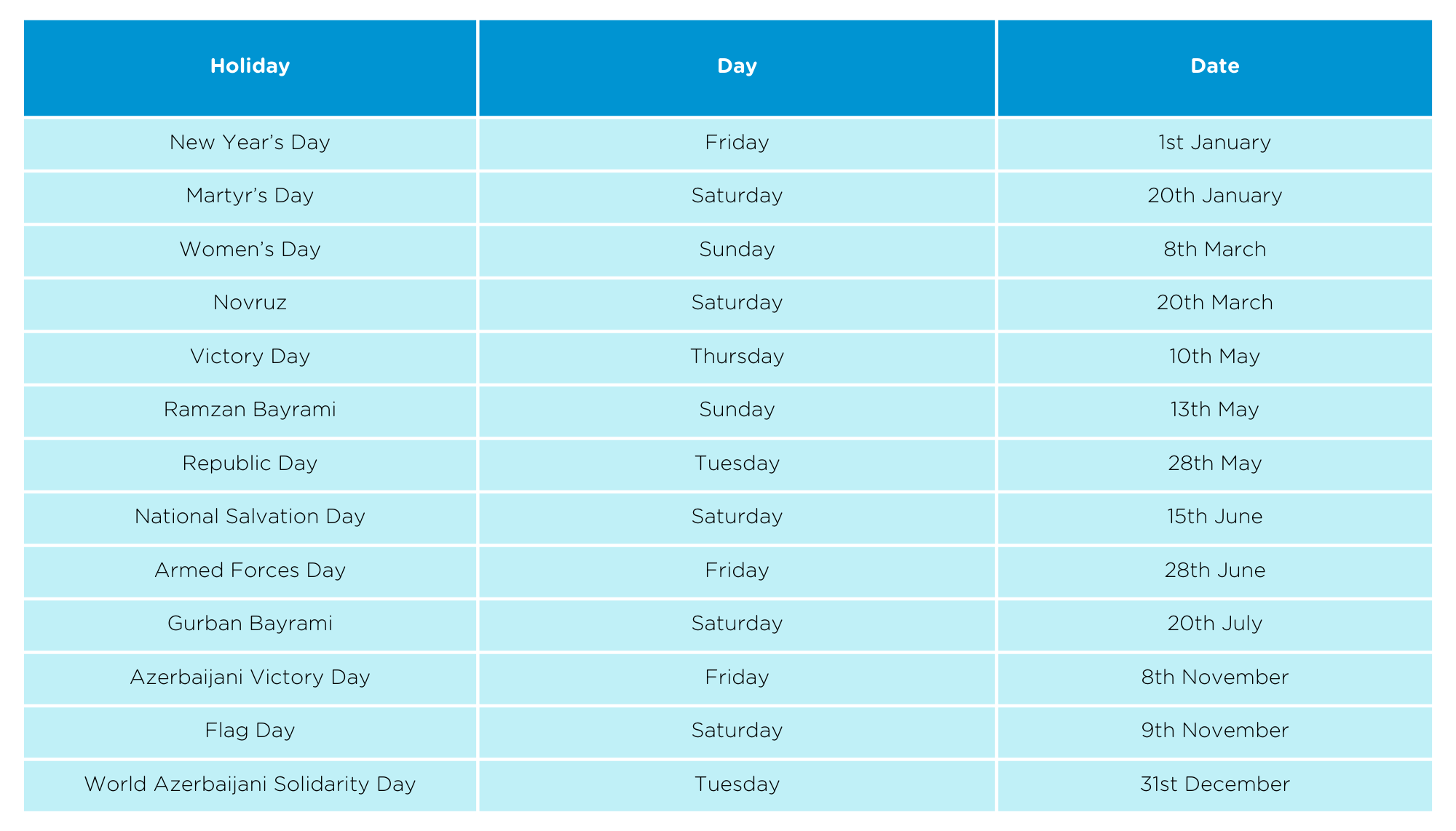
By
Leanna Seah
September 20, 2024
Updated
October 29, 2024

Overview
Azerbaijan, located in the South Caucasus region, is known for its rich cultural heritage and natural resources. With a population of approximately 10 million, the country offers a diverse talent pool for businesses looking to hire employees.
Much of Azerbaijan’s economy is rooted in oil and gas production, making it a good choice for energy companies looking to expand their operations into this region. Azerbaijan also has significant potential within the wind and solar industry, and the government has plans to expand the country’s renewable energy sector. By 2023, Azerbaijan plans to install 1500 MW in renewable capacity, partially to support the future exportation of green hydrogen and green electricity to European markets. While oil and natural gas accounts for around 95% of the country’s total export revenues, Azerbaijan’s other exports include fruits, sugar, polymers and metals.
Education levels in Azerbaijan have been steadily improving, with a focus on developing a skilled workforce. The country has significantly invested in education, particularly in science and technology. This has led to a growing number of qualified professionals available for employment.
Employment laws in Azerbaijan are primarily regulated by the Labor Code, which outlines employers' and employees' rights and obligations. It covers various aspects of employment, including contracts, working hours, minimum wage, leave entitlements, and termination procedures. Employers need to familiarise themselves with these laws to ensure compliance.
Azerbaijan has a favourable business climate, with the government actively promoting foreign investment and economic diversification. The country's top industries include oil and gas, construction, manufacturing, telecommunications, finance, and tourism. These sectors offer significant employment opportunities for both local and foreign workers.
| Capital |
Baku |
| Languages spoken |
Azerbaijani |
| Population size |
10.4 million |
| Payroll frequency |
Monthly |
| Currency |
Azerbaijani Manat (AZN) |
| VAT |
18% |
Payroll and taxes
VAT rates
VAT
Azeri VAT rates are as follows:

Table 1: VAT rates based on goods/type of service
Employer contributions
In Azerbaijan, employers must contribute to the state social protection fund and health insurance for their employees. The employer tax contributions in Azerbaijan include:

Table 2: Employer contribution rate
Employee contributions
Employees in Azerbaijan are also required to make some tax contributions, including:

Table 3: Employee contribution rate
Minimum retirement age
In Azerbaijan, the minimum retirement age is 65 years for men and 63 years for women. In July 2026, the minimum retirement age for women will also be brought up to 65.
Minimum wage
As of 2023, the minimum wage in Azerbaijan is AZN 345 per month.
Employee benefits
Mandatory benefits
In Azerbaijan, there are several mandatory benefits that employers are required to provide to their employees. These include:
Paid annual leave
Employees are entitled to at least 21 days of paid annual leave annually. This entitlement increases to 24 days for employees who have worked for the same employer for over five years.
Sick leave
Employees are entitled to up to 56 days of paid sick leave per year, which can be extended if necessary.
Maternity leave
Pregnant employees are entitled to 126 days of paid maternity leave. This can be extended during a difficult birth or multiple births.
Severance pay
Employees dismissed without cause are entitled to severance pay, calculated based on their length of service.
Workplace safety
Employers must ensure that workplaces are safe and healthy for their employees, and provide necessary training and protective equipment.
It's important to note that these are the minimum requirements under Azerbaijani law. There are also several supplementary benefits that many employers include in their packages.
Supplementary/optional benefits
In addition to the mandatory benefits required by law, you may offer supplementary benefits to your employees. In Azerbaijan, these typically include:
Health insurance
Some employers offer coverage that exceeds the minimum requirements under Azerbaijani law.
Retirement plans
Some employers provide employees with retirement plans or pension schemes to supplement the state-provided pensions.
Life insurance
In Azerbaijan, employers often provide life insurance coverage for their employees, which can offer financial protection to their families in case of an employee's death.
Bonuses and incentives
Some employers offer bonuses or other financial incentives to reward good performance or to motivate employees.
Training and development
Many employers deliver training and development opportunities to their employees to help them improve their skills and advance their careers.
Flexible working arrangements
Some employers make flexible working arrangements, such as flexible hours or remote working, to help employees balance work and personal responsibilities.

Source: Shutterstock
Working hours
In Azerbaijan, the standard working hours and regulations are typically governed by the Labor Code. Here's an overview of working hours in Azerbaijan:
Standard working hours
- The standard working week in Azerbaijan is 40 hours.
- The typical working schedule is from Monday to Friday, with Saturday and Sunday considered weekends.
- The daily working hours are usually 8 hours, with a one-hour break for lunch or rest.
Overtime
- Overtime work may be required in certain circumstances, such as emergencies or urgent situations.
- Overtime is typically compensated with additional pay or time-off in lieu, as determined by the employment contract or collective agreement.
- The maximum allowable overtime is usually limited to 4 hours per day and 180 hours per year, as the Labour Code specifies.
Shift work
- In industries that require continuous operations or round-the-clock services, such as healthcare or transportation, shift work may be implemented.
- Shift work schedules may involve rotating shifts, night shifts, or weekend shifts, and employees working these shifts may be entitled to additional compensation or benefits.
Breaks and rest days
- Employees are generally entitled to rest breaks during the working day, including a lunch break or rest period of at least one hour.
- In addition to weekends, employees are entitled to at least one rest day per week, usually on Sundays.
It's important to note that specific working hour arrangements may vary based on the industry, company policies, and employment contracts.
Types of leave available
Annual leave
Employers can offer their employees 21 days of paid leave with two weeks taken together. This entitlement applies to all employees, irrespective of their start date.
In certain industries like education, science, medicine, or agriculture, employees can be provided with a 30-day paid leave policy.
Public holidays

Table 4: Public holidays in Azerbaijan
Please note that the table above includes the holiday, the day of the week it falls on, and the corresponding date for the year 2024.
It's important to remember that the dates for holidays in subsequent years may vary, so it's advisable to refer to an updated calendar or consult with local authorities for the precise dates of holidays in Azerbaijan.
Sick leave
If an employee cannot work due to sickness, the employer will cover their payment for the first 14 days. After this, the state social protection fund will take over. Leave periods must always be supported by medical certification.
Maternity/paternity leave
Pregnant employees are entitled to 126 days of maternity leave, starting 70 days before childbirth and ending 56 days after the child is born. Employees are granted 70 days of leave after childbirth in the event of multiple births.
Fathers can take up to 14 days of unpaid time off for paternity leave.
Other leave
Additional leave types may include marriage leave, bereavement leave, study leave, and leave for military service obligations. The duration and conditions for these leaves may vary.
Background checks
In Azerbaijan, background checks are not explicitly mandated by law for all types of employment. However, certain industries or specific job positions may require background checks as part of their hiring process. It is common for employers in sectors such as finance, security, and childcare to conduct background checks on potential employees.
The decision to perform a background check is usually at the discretion of the employer, taking into account the nature of the job, industry regulations, and their own internal policies. Background checks may include verifying educational qualifications, employment history, criminal records, credit history, and other relevant information.
It's worth noting that while background checks are not mandatory for all positions, employers may still choose to conduct them as a means of due diligence and risk management. It's recommended that employers ensure compliance with data protection and privacy laws when conducting background checks, obtaining consent from candidates, and handling sensitive personal information appropriately.

Source: Shutterstock
Attracting talent
To attract talent in Azerbaijan, employers can offer various benefits and incentives to make their job offers more appealing. Here are some specific benefits employers in Azerbaijan can consider providing to attract and retain employees:
Competitive salary
Offering a competitive salary that aligns with industry standards and reflects the qualifications and experience required for the position is crucial. Employees are more likely to be attracted to job opportunities that provide fair and competitive compensation.
Flexible working arrangements
Providing flexible work options such as remote work, flexitime, or compressed workweeks can entice employees who value work-life balance or have specific needs, such as parents with young children or individuals with long commutes.
Professional development opportunities
Supporting employees' professional growth through training programs, workshops, conferences, or educational assistance can be attractive. Demonstrating a commitment to their career development shows that you value their employees' growth and invest in their skills.
In addition, offering performance-based bonuses or incentives tied to individual or team achievements can motivate employees and reward exceptional performance. These incentives can be financial or non-financial, such as recognition programs or opportunities for career advancement.
Employers need to assess the needs and preferences of their target talent pool and tailor their benefits and incentives accordingly. Additionally, regularly reviewing and benchmarking benefits against industry standards can help ensure they remain attractive and competitive in the job market.
Termination of employment
Notice period
In Azerbaijan, the standard notice period is typically determined by the employment contract or collective agreement between the employer and the employee. However, if there is no specific agreement, the Labour Code of Azerbaijan sets the minimum notice period requirements.
According to the Labour Code, either party (employer or employee) can terminate an employment contract by providing a written notice. The length of the notice period depends on the length of service of the employee:
 Table 5: Notice period length
Table 5: Notice period length
It's important to note that in some cases, the employment contract or collective agreement may specify longer notice periods than those stipulated by the Labour Code. Therefore, referring to the specific terms outlined in the employment contract or any applicable collective agreements is advisable to determine the exact notice period.
Probationary period
The length of probationary periods can vary depending on the nature of the job and the terms agreed upon in the employment contract or collective agreement. The Labour Code mandates no specific duration for probationary periods.
The employer and the employee typically agree upon the duration of the probationary period, and it should be clearly stated in the employment contract or any applicable collective agreements.
Severance pay
The rules regarding severance pay are summarised below.
Termination by the employer
If an employer terminates an employment contract without the employee's fault, they must generally provide severance pay. The amount of severance pay depends on the length of service:

Table 6: Severance pay amount
The average salary used for calculating severance pay is based on the average salary earned by the employee during the last 12 months preceding the termination.
Termination by the employee
If an employee terminates their employment contract, severance pay is generally not applicable. However, specific employment contract or collective agreement provisions might address severance pay upon voluntary termination.

Source: Shutterstock
What are my options for hiring?
At Airswift, we offer customised employment solutions and expert guidance for international companies seeking to hire workers in Azerbaijan. With our assistance, the hiring process becomes a breeze and fully complies with Azerbaijani laws.
Our depth of knowledge and experience allows us to mitigate risk by handling the administrative burden of onboarding new employees, freeing up your time to concentrate on boosting your business.
Talent acquisition
Working with an in-country talent acquisition specialist helps you source high-quality candidates in Azerbaijan's competitive landscape.
Our contract hire services can help you fill temporary roles and give your business the agility to respond to needs and market demand shifts.
For long-term hiring needs, Airswift’s professional search service can help you discover talented candidates for permanent employment within your business.
Employer of record
If your business needs to hire remote staff without setting up an entity in Azerbaijan, an Employer of Record simplifies this process with minimal compromise on expenses and time.
Working with an experienced Employer of Record allows you to bypass the complications of setting up a legal entity in-country by appointing a partner to oversee payroll management and manage mandatory benefits. All whilst ensuring that you stay compliant with Azerbaijan’s labour law.
*Although the information provided has been produced from sources believed to be reliable, no warranty, express or implied, is made regarding the accuracy, adequacy, completeness, legality or reliability of any information. For the latest information and specific queries regarding particular cases, please contact our team.


